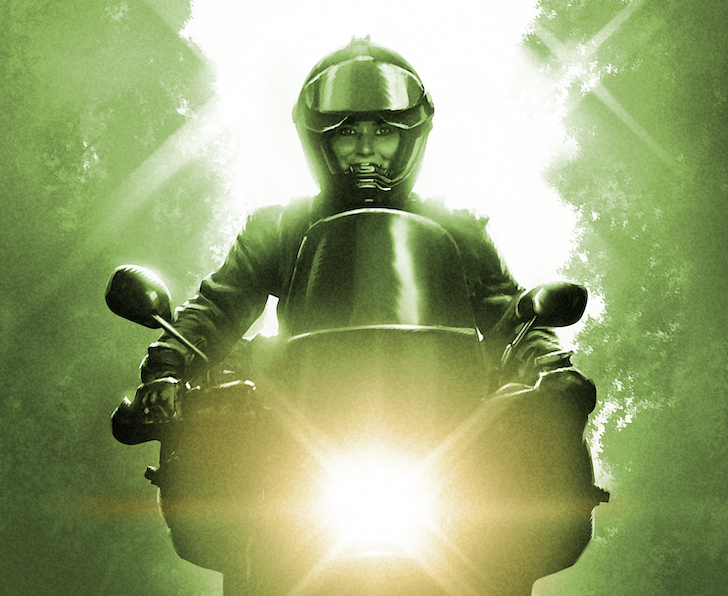Editor’s Note: This article was originally published in Overland Journal’s Spring 2023 Issue. Illustrations by Wayne Watford.
Editor’s Note: This article contains mature content that may be considered disturbing, particularly to victims of sexual assault or minors.
Seven years ago, I was dispatched to London to deliver an enrichment program at the Apple Store in Covent Garden. My topic was Adventure Filmmaking, and my audience appeared to be primarily composed of broken Mac owners awaiting their audience at the Genius Bar. It was a tough room, for sure, but I’m a pro and felt quite sure I would mesmerize them with well-spun yarns, dopamine-triggering videos, and achingly seductive photographs.
Dangerous stuff, this sharing of inspiration. Exposure to alternate realities inevitably forces cubicle-dwellers to imagine all manner of wondrous things that they, too, could do if only they bravely trod a different path—one that left no trackless corner of the world unexplored. Striking out on an epic odyssey built upon optimism, Spartan-like minimalism, and endless adventure is a very tempting idea indeed. Thankfully, for the survival of the world’s few remaining wild places, most of the people who attend my presentations choose the path of predictability over uncertainty. The fact that a significant degree of danger is always right there—writ faintly in the cosmic fine print, not far beneath the suntanned legs dangling photogenically over the sheer cliff—means the path of true adventure is most decidedly not for everyone.
Did I mention that this day’s audience was slump-shouldered and starved for distraction? Well, not quite all of them. One attendee stood high above the rest, literally. Balanced comfortably atop a pair of well-used inline skates, she was tall, blonde, and incredibly fit. With a dazzling smile and the casual ease of a professional athlete, she skillfully skated her way to a front-row seat. She carried no broken MacBook.
After my show, I learned that the lanky skater, Vasilisa Komarova, was already a well-seasoned motorcycle adventure traveler. As we chatted away, she told me she had been born and raised in the Soviet Union and possessed a law degree that she had earned in Moscow. Practicing law in the corrupt Russian legal system was many things but not the fight for justice that she had expected it to be. Deeply disappointed, Vasilisa left her legal career and Russia behind, moved to London, focused on sports, and reinvented herself as a personal trainer.
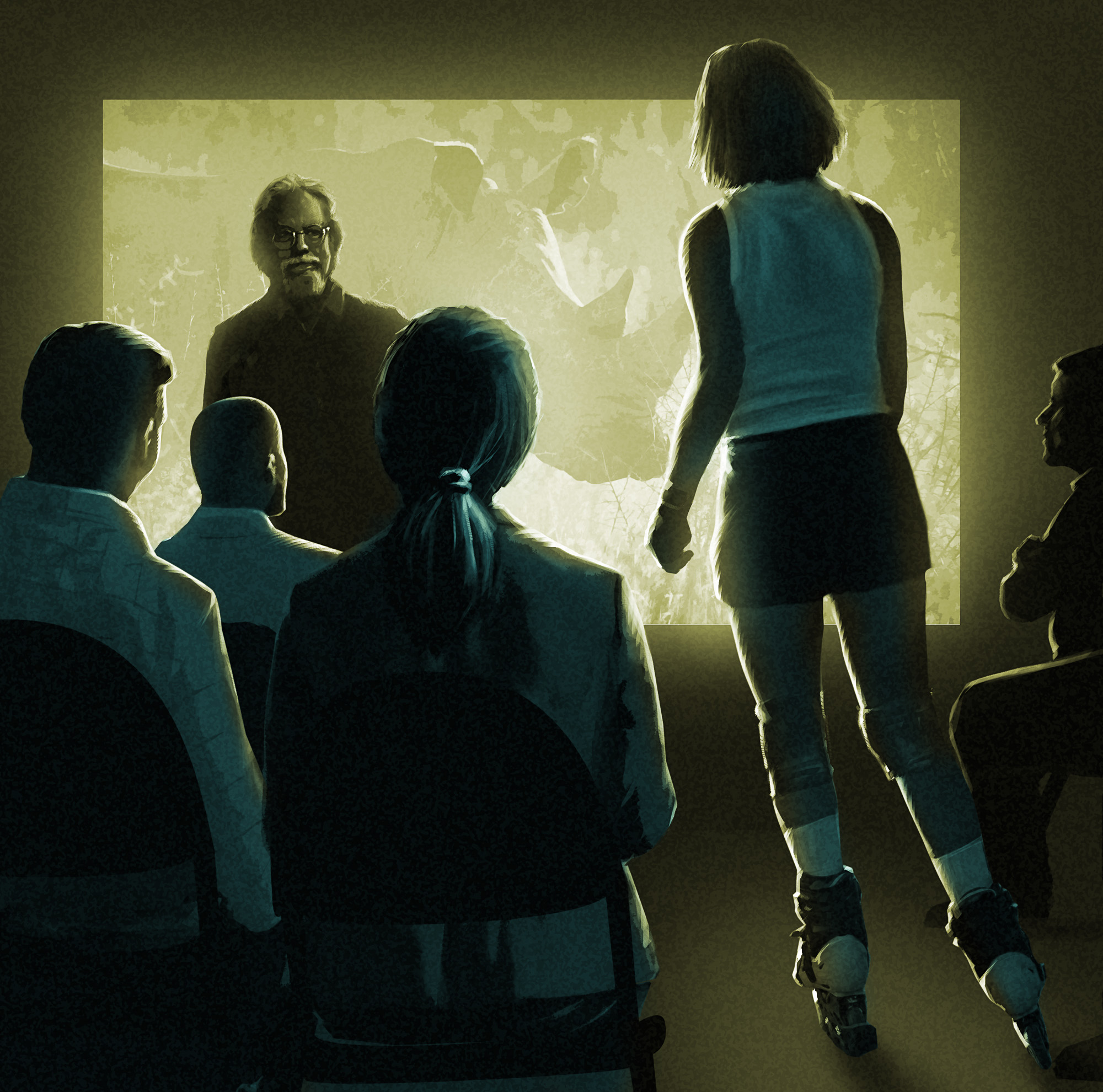
Vasilisa shared that she was living frugally and focused on stockpiling enough cash to continue her lifelong dream of exploring the world by motorbike. I recall her sharing that her first moto adventure had occurred several years earlier when she traveled alone to Indonesia, bought a cheap motorbike, acquired a tattered map, identified the craziest road on that map, and promptly set out to ride to wherever it led her. She was instantly hooked. From then on, Vasilisa would spend a couple of months each year exploring the different countries of Asia and preparing for the day that she could fulfill her lifelong dream of chasing horizons forever.
After a brief and pleasant chat, we exchanged Instagram info and went our separate ways. Those few minutes were to be the only time we ever conversed face-to-face, but I was so impressed with her dedication to solo travel that I followed her social media postings immediately.
It wasn’t long before it became apparent that Vasilisa had resumed her ’round the world motorcycle adventure. Starting in Santiago, Chile, she was once again astride a small dirt bike and heading north to Alaska. This caught my attention because I knew that she’d eventually come through my home base of Prescott, Arizona—the epicenter of overland adventure—and I thought it would be great fun to turn her visit into a story for Overland Journal. I shared that I intended to put her onto my antique Harley Davidson FXRS when she hit Arizona, and she loved the idea.
From the digital breadcrumbs that Vasilisa was leaving on Instagram, I surmised that she was an immersive traveler, a very good photographer, and in no rush whatsoever. Posting beautiful photo after beautiful photo, Vasilisa documented her unhurried progress north. It soon became clear that she was making friends and taking on whatever work she could find along the way. When in cities, she would find a gym and offer personal training. When in rural areas, she would take on whatever work she could find.
A charming polyglot, Vasilisa made friends everywhere she traveled. Local motorbike clubs, in particular, loved to adopt her, ride with her, teach her motorcycle maintenance, and watch her back. When I saw photographs of her rebuilding her carburetor and fabricating cargo racks for her hardy little Honda, “Vladimir,” I was genuinely impressed. Vasilisa’s posts consistently showed a woman who was resourceful, joyous, and strong—in every sense of the word.
Routinely checking her social media, I noticed that Vasilisa was somewhere in the Bolivian rainforest (working at an eco-tourism lodge, I think) and had just posted a picture of herself beatifically holding a rather large tarantula. The same hand that held the giant spider featured a substantial medical dressing that implied that she had somehow injured herself. Being the supportive ePal that I am, I slid into her DMs to ask her what had happened. My query went unanswered. Small alarm bells went off in my head, but I did not press the question.
After a substantial period of time—months, it was—Vasilisa responded and shared that her hand had been damaged in nothing less than a fight for her life.
After thousands of kilometers of wonder-filled solo travel, Vasilisa and Vladimir arrived in the Bolivian village of Santa Rosa. Seeking camping advice from kindly locals, she learned that she was welcome to either camp in a walled-in family compound or plop down on the sundeck of a popular lake located some five kilometers outside of town.
Excited by the possibility of photographing the evening’s stars and a stunning sunrise the following morning, Vasilisa chose to ride out to Laguna Colorado and pitch her tiny tent in plain view. As the sun set in a dazzling display of color and fishermen hauled out their picturesque panga at the far end of the beach, Vasilisa felt blessed to be living such a wonderful life. The possibility that the next day would find her begging local women for help in finding a morning-after pill was unimaginable.
But that was before she was brutally gang-raped on that same beautiful beach. Before she limped into town to report the attack to the disinterested police. Who then did nearly nothing.
The following recitation of these events came to me in fits and starts. This was not an easy story for Vasilisa to share, and I did not press her to do so. I’ve needed to condense and sanitize these horrifying events in order not to fly into the same red-hot rage I felt upon first hearing them. It’s a terrible story, but bear with me; it ends as well as it could, all things considered.
Vasilisa’s Story
“Before I share my story, I want to make one thing perfectly clear; the last thing I want to happen is to put women off of traveling, especially traveling on their own. I know it may sound counterintuitive, given my terrible story, but now, more than ever, I feel that if you haven’t experienced the wonders of solo travel, you haven’t really lived. The world is yours to discover, and through the journey, so is your true self.
More than anything, I want my story to help anyone who might find themselves in a similar situation, whether it is a woman being assaulted or a man who wants to come to her assistance. I want to explain the realities that adventure travelers, especially solo women travelers, might encounter while traveling in the majority world.
In general, women are more vulnerable than men. It’s a fact. Even I, a physical fitness champion, am weaker than a man who has put in equal training. It’s how we are made, and to deny it is to deny reality. Being physically weaker, however, does not mean we are weaker in our hearts and minds. It does not mean we must be dependent upon a man or that we do not deserve to experience the world in whatever manner we choose. Women should be able to travel freely, and the world should not put us in harm’s way simply because of our gender. But the damn reality is that it does, and until things change for the better, women must be ever so careful.
I arrived at the lagoon sometime between 5 and 6 o’clock, just as the sun began to set. There were a few teens swimming in the waters and some tourists enjoying the view from a wooden terrace, where I decided to settle in for the night. I parked my motorbike, set up my tent, and spent the rest of the evening working on my computer. I was tired after a long day under the scorching sun and decided to turn in early.
At one point, I heard very loud voices near my tent, and half asleep, I called out to ask them to be quieter. Later, awakened by the oppressive heat and an insistent thirst, I decided to take the opportunity to photograph my tent and motorbike beneath the beautiful canopy of stars.
My camera was not optimal for this task, and it was a moonless night, so I had to take my time to get the exposure right. I was absorbed by the process when I heard some men talking to me from the darkness. There was one man somewhere behind me to my left and another one a bit farther away to my right. I was not frightened, but I did feel uncomfortable being in the company of two men unknown to me, so many kilometers away from the village. I stayed polite but tried to make the conversation as short as possible. I was worried about them being interested in my camera but did not imagine they could have other interests as well. One of the guys suggested I join them for night fishing, but I declined, saying I had no use for the fish and needed to sleep. I bid them goodnight and left.
Making myself comfortable in my tent, I began to transfer my images to the computer. I recall that the clock on my computer read 2:00 a.m.
A short while later, the guy who had spoken to me earlier came to my tent to offer a room in his house. I did not unzip the tent but explained I was exactly where I wanted to be—not because I had nowhere to go but because I intended to photograph the lake at sunrise. He insisted to the point that I could not keep the conversation polite. Finally, I shouted at him, demanding he leave me in peace. He eventually left. The interaction troubled me, but I was too weary to listen to my intuition and drifted off to sleep.
I awoke to the sounds of my bike being vandalized and realized there were now a group of men outside my tent. I was worried but still not frightened and shouted at them to leave me and my bike alone. Silhouetted on my tent’s door was a big man with a long machete. He shouted that they were ready to party and looking for a bitch to have fun with. Now I was terrified. They tore open my tent and dragged me out.
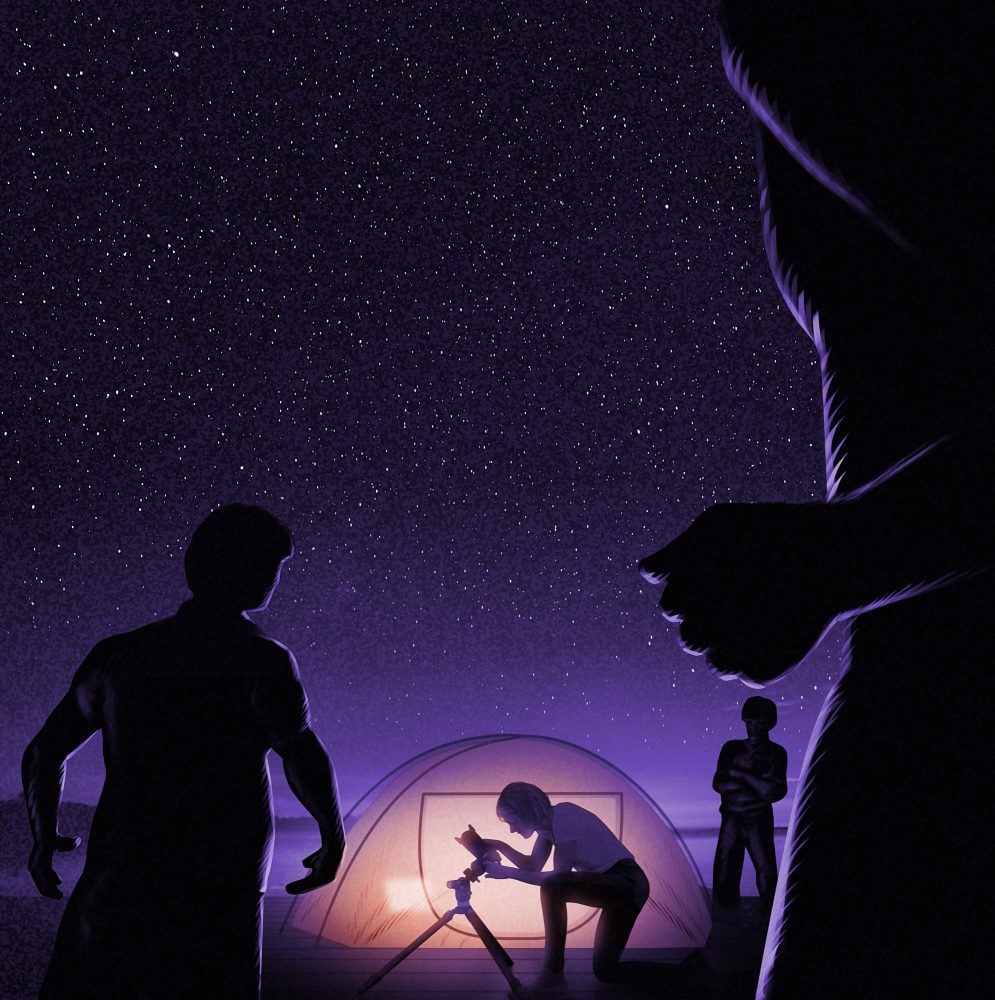
One grabbed me by the throat, another held my legs, and the third tore off my clothes. I fought hard. They laughed.
The morning after continued the nightmare. I had been choked to unconsciousness, my hand was dislocated in three places, and I was left for dead. When I awoke, I was starving. Almost all of my belongings had been either stolen or vandalized.
Once I found my way to Santa Rosa and reported what happened to the police, I was taken to the area’s only doctor. He did not want to see me because I could not pay him in advance. After being robbed of everything but my ruined laptop, I could not even afford to eat. The doctor eventually attended to me, but only after the police assured him that my assailants’ families might be forced to pay his fees. He passed the rape exam to a laboratory where the story was repeated.
It should be noted these were not forensic specialists. When I asked about a DNA exam, I was told there was no one capable of doing such a thing locally and that any tests would need to be sent to La Paz or Trinidad for processing. Learning that I had no money to pay for this service, they refused to do so.
With no one powerful to assist me, I contacted the Russian embassy, and they made a call to the Santa Rosa police. I began to lose my faith in mankind when the policemen charged with investigating my case openly confessed they only bothered to do so in hopes of receiving a written commendation from the Russian Embassy. It was a career move. After requiring the ambassador to guarantee them a positive acknowledgment for their great work, the police reluctantly retook my report. I was too shaken to ask for a translator at the time and eventually learned the report was filled with errors.
My three attackers, notorious local thugs, were quickly identified and captured. After two long days without food, I was eventually taken to a small town 70 kilometers away, where my assailants were being detained in a temporary holding cell. It was here where I met the disinterested female prosecutor assigned to my case.
I eventually surmised it was her responsibility to appoint a doctor who would, in turn, order a psychological assessment and evaluate my rape kit—both of which would eventually be used in court and were critical to the outcome of my case.
My assailants’ first court appearance was on the third day. I had finally eaten some fruit, but in my fragile emotional state, the legal process was very confusing. I came to understand that the three defendants were being detained, and the investigation had officially begun. The investigation might take months, or it might take years. Thankfully, a tourist administration bureau reached out to me and offered me a few days of free housing, but only until I decided upon what I wanted to do.
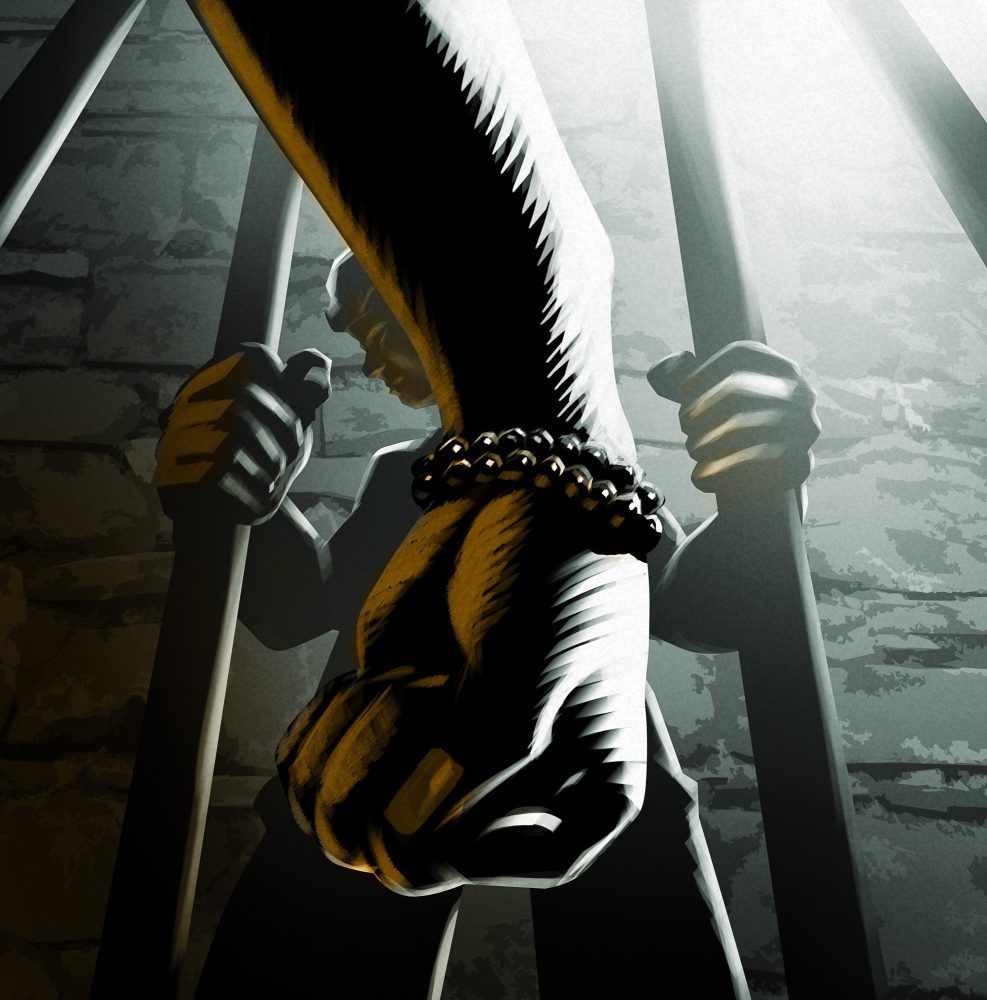
I knew what I wanted—I wanted justice. I realized the case would be dropped the moment I departed the area, and I could not allow these monsters to go free. The idea that they might continue to stalk the same grounds as Santa Rosa’s innocent young girls was completely unacceptable to me.
I wanted to see their prosecution through, but no one could tell me how long I would have to wait. For two weeks, I dutifully visited the prosecutor’s office only to encounter locked doors or a secretary who knew nothing. “Come back tomorrow,” I heard her say, day after day, and I did. Frustrated, I reached out to the Russian embassy once again. They told me my efforts would be fruitless and advised me to leave the area immediately. Since I was no longer in imminent danger, the Russians felt no obligation to help me further and did not.
Fortunately, I have dual citizenship. I am Russian by birth and British by nationalization. I regret I didn’t contact the UK consulate sooner because a fierce female vice consul flew in the very day after I made first contact. With a woman of power on my side, the police were finally prodded into effective action, and the Bolivian prosecutor eventually resurfaced, but only to say that my medical and psychological reports were nowhere to be found.
Eleven months later, when I finally saw the lab results in court, I learned that the inept Santa Rosa lab worker had failed to include the date of the testing, rendering the results inadmissible.
Each day was its own unique nightmare, but I have survived them all.”
Justice
It took a year of Vasilisa enduring death threats from the rapists’ families, publicly calling out Bolivian politicians, and navigating the country’s corrupt legal system before a “guilty” judgment was passed down and the three perpetrators jailed.
In 2020, accompanied by a team of video journalists from Al Jazeera News, Vasilisa traveled back to Bolivia to visit her assailants’ prison and to confirm, with her own eyes, that they were, indeed, securely behind bars. Vasilisa has since used the notoriety gained from the broadcast of her story to seek out and support abused women’s support groups throughout South America. Google the Al Jazeera video; it is very well done.
Vasilisa’s pursuit of justice is a journey that has taken a full six years to see to completion. In July of 2022, the convicts exhausted their last appeals and are currently serving lengthy prison sentences, hopefully in abject misery. At the time of this writing, my unbreakable friend Vasilisa is happily living and working in Tulum, Mexico. Follow her and sturdy little Vladimir on Instagram (@mythousandsmiles) to share in her ongoing adventures.
When Vasilisa and I connected after her assault, it was via a Zoom call. As a male who has undoubtedly made more than a few inadvertent missteps and ill-conceived attempts at humor with my female friends over the years, I immediately felt compelled to apologize to her for all men. Vasilisa wasn’t having it. She said her attackers were not men; they were animals. She shared that she believes the majority of men have strong moral codes and would never consider harming women, let alone becoming rapists. She thinks it is possible to eliminate the threat of sexual violence, but only if both genders work toward the goal together.
We both hope this story of unbreakable tenacity serves to start a conversation about what we, Vasilisa’s fellow adventurers, can do—both individually and as a community—to make the reality of sexual assault disappear forever.
I continue to look forward to sharing a fine motorbike ride with Vasilisa whenever her travels bring her through beautiful Arizona. She will find safe haven here and, I trust, everywhere in our vast overland community. As every solo traveler deserves.
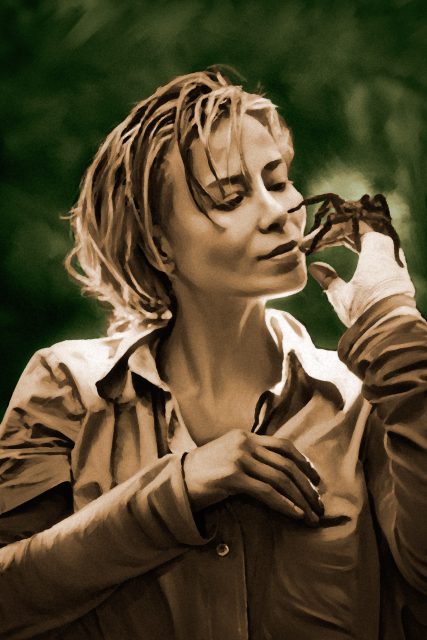
Seven Steps to Safer Solo Travel
- Establish and follow your own Best Practices. Assume you are vulnerable and act accordingly. Have a plan. If you are assaulted, don’t expect the local legal system will help you. Know who you can call in the event of an emergency abroad.
- Never camp in the vicinity of strangers unless it is a specially designated and well-secured site.
- Trust your instincts. If something seems “wrong,” it probably is.
- Fitness and fighting skills may help you survive but avoid physical conflict if at all possible.
- Don’t let force multipliers (weapons) lull you into a false sense of security. They aren’t the easy answers that they may seem, especially abroad. Local laws regarding the possession and use of weapons may turn you from a victim into an aggressor. Weapons intended for defense can also be taken and used against you. Be mindful.
- Be proactive. Escape and evade violence if at all possible.
- If you aren’t sure about your language abilities, you must pressure the authorities for a translator. If you are denied one, insist on giving a new report when one is available.
For more on Vasilisa Komarova, please tune in to Episode #134 of the Overland Journal podcast.
Our No Compromise Clause: We carefully screen all contributors to ensure they are independent and impartial. We never have and never will accept advertorial, and we do not allow advertising to influence our product or destination reviews.


